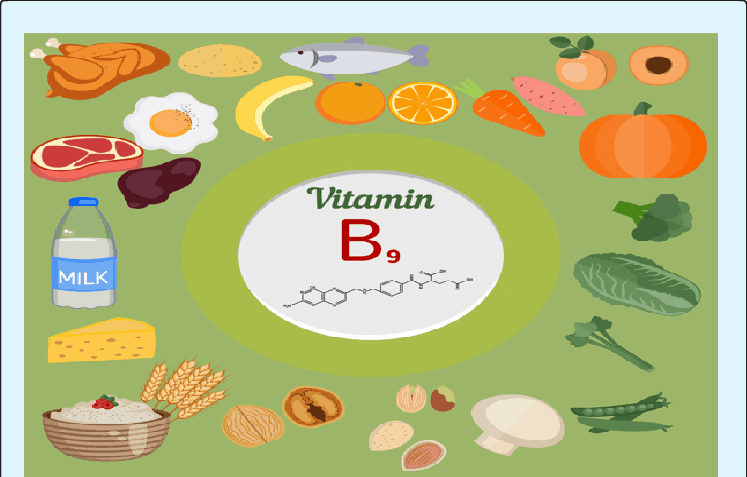
Vitamin B9
Folate is the natural form of vitamin B9, water-soluble and naturally found in many foods. It is also added to foods and sold as a supplement in folic acid; this form is better absorbed than from food sources 85% vs. 50%.
Vitamin B9 Sources:
The richest sources are:
Liver
dark green leafy vegetables
beans
wheat germ
yeast
Mung beans
Salmon
Orange juice
Avocado
Milk
Vitamin B9 Health Benefits:
Folic acid is crucial for proper brain function and plays a vital role in mental and emotional health. It aids in producing DNA and RNA, the body's genetic material, and is especially important when cells and tissues are overgrowing, such as in infancy, adolescence, and pregnancy. Folic acid also works closely with vitamin B12 to help make red blood cells and iron work properly in the body.
Vitamin B9 Deficiency:
It is relatively common to have low levels of folic acid.
Some causes of vitamin B9 deficiency are:
Alcoholism: Alcohol interferes with folate absorption and speeds the rate that folate breaks down and is excreted from the body.
Inflammatory bowel disease
Celiac disease
Certain medications
Pregnancy
Folic acid deficiency can cause:
• Poor growth
• Tongue inflammation
• Gingivitis
• Loss of appetite
• Shortness of breath
• Diarrhea
• Irritability
• Forgetfulness
• Mental sluggishness
Pregnant women need more folic acid to lower the risk of neural tube congenital disabilities, including cleft palate, spina bifida, and brain damage. Neural tube defects are congenital disabilities caused by abnormal development of the neural tube, a structure that eventually gives rise to the brain and spinal cord.
Deficiency of vitamin B9 can also indicate a deficiency of vitamin B12. Vitamin B12 plays an essential role in converting vitamin B9 to its active form in the body, tetrahydrofolic acid. Deficiency can be prevented by adequate consumption of foods rich in vitamin B9 or through supplements.
Folic acid in the diet seems to protect against the development of some forms of cancer, including:
o Colon cancer
o Breast cancer
o Cervical cancer
o Pancreatic cancer
o Stomach cancer
Vitamin B9 Daily Recommendations:
Infants, 0 to 6 months: 65 mcg (adequate intake)
Infants, 7 to 12 months: 80 mcg (adequate intake)
Children, 1 to 3 years: 150 mcg (RDA)
Children, 4 to 8 years: 200 mcg (RDA)
Children, 9 to 13 years: 300 mcg (RDA)
Teens, 14 to 18 years: 400 mcg (RDA)
Men and women, 19 years and older: 400 mcg (RDA)
Pregnant women: 600 mcg (RDA)
Breastfeeding women: 500 mcg (RDA)
Vitamin B9 Toxicity:
There is no risk of excess vitamin B9 intake from food. The body eliminates excess vitamin B9 as needed. However, an upper limit for folic acid is set at 1,000 mcg daily because studies have shown that taking higher amounts can mask a vitamin B12 deficiency. This deficiency occurs most often in older adults or those eating a vegan diet.




